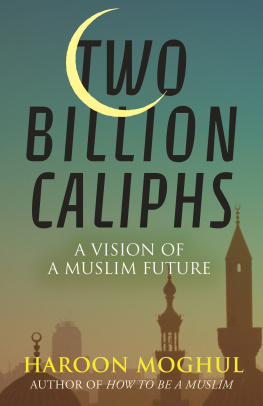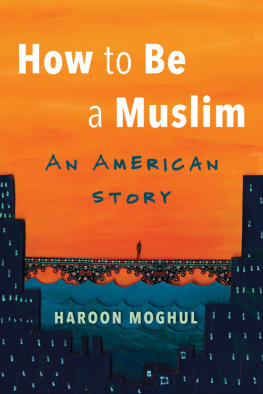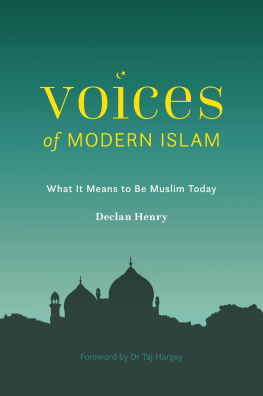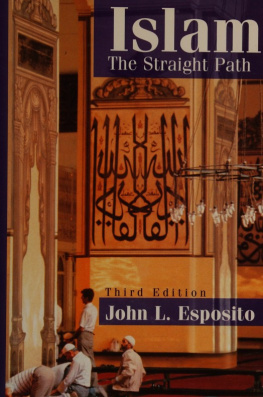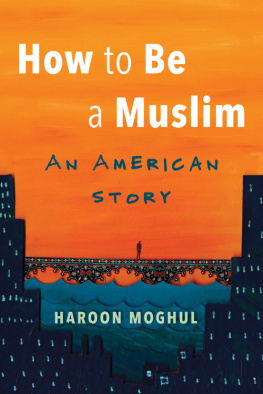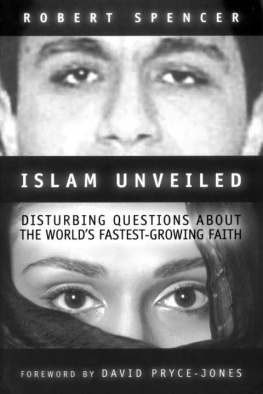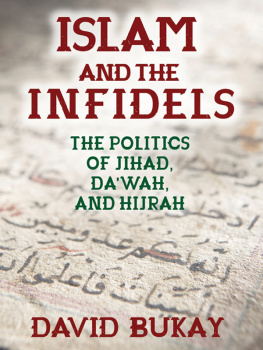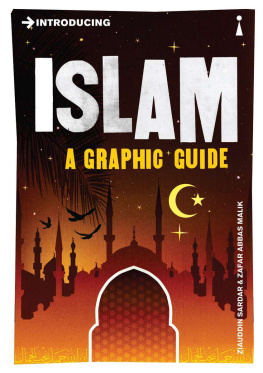Contents
Guide

Beacon Press
Boston, Massachusetts
www.beacon.org
Beacon Press books
are published under the auspices of
the Unitarian Universalist Association of Congregations.
2022 by Haroon Moghul
All rights reserved
Printed in the United States of America
25 24 23 22 8 7 6 5 4 3 2 1
Text design and composition by Kim Arney
Library of Congress Cataloging-in-Publication Data
Name: Moghul, Haroon, author.
Title: Two billion caliphs : a vision of a Muslim future / Haroon Moghul.
Description: Boston : Beacon Press, 2022. | Summary: With autobiography, theology, and a little comedy, Two Billion Caliphs describes what Islam is, where it comes from, and what it could beProvided by publisher.
Identifiers: LCCN 2021047020 | ISBN 9780807024652 (hardcover) |
ISBN 9780807024669 (ebook)
Subjects: LCSH: Moghul, Haroon. | MuslimsUnited
StatesBiography. | IslamEssence, genius, nature.
Classification: LCC BP80.M6155 A3 2022 | DDC 297.092 [B]dc23
LC record available at https://lccn.loc.gov/2021047020
For my mother. My first and best teacher.
Then my mother.
Then my mother.
A NOTE FOR THE READER
I GENERALLY REFER to the Creator as God, not Allah, since the meaning of both is the sameand the former is more familiar for English speakers.
For major figures (also) sacred to the Islamic tradition, I have elected to use English names when they are well known. Hence, for example, I refer to Isa and Maryam as Jesus and Mary, may Gods peace and blessings be upon them both.
In the Islamic tradition, after each mention of particularly revered persons and beings, such as Prophets, saintsincidentally, a minority of Muslims consider the Virgin Mary a Prophet, tooas well as the Archangel Gabriel, one adds a prayerful invocation.
As a case in point, after each mention of the Prophet Muhammad, Muslims will and must say may Gods peace and blessings be upon him, or some variation thereof, sometimes in Arabic (or in other languages if Arabic is not their own).
While I do not write out such invocations in every applicable instance, this note is a reminder to myself and other Muslims to make such a prayer where it is respectful and requiredand it should indicate to readers of other beliefs the reverence we hold for these individuals.
For the names of family and companions of the Prophet Muhammad, I have tried to strike a balance between ease of reading and pronunciation alongside adherence to established styles of transliteration from the original Arabic to my native English.
This means that while I choose to spell the name of the Prophet Muhammads younger grandson as Husaynmay God elevate himhis name may be more familiar to American readers as Hussain or Hussein. These are the same name, just spelled differently. To stay closer to transliteration while maintaining accurate pronunciation, however, I have chosen what might be the less familiar spelling (especially for readers outside the Islamic tradition).
Similarly, for the Prophet Muhammads Coptic wife, may God elevate her, I have chosen to transliterate her name as Marya, since that balances the Arabic spelling of her name with its obvious Christian origins.
God willing, these decisions make the book more accessible to a broader audience.
PROLOGUE
In the name of God, Loving to All and Merciful to Each
Most books are stories. They have beginnings, middles, ends. Most religions have texts. They have geneses, interregnums, apocalypses. But not the Muslim scripture. The Quran isnt organized chronologically. It doesnt furnish us a history. It is not the rise or fall of a people. It is not the arc of a merciful Prophets life, bending, as his did, toward love. It is a book about that Being Who is the source of all being, the only Existence that must exist, and because God did not begin and cannot endHe triumphs where language faltersso must His book challenge us. Even when the Quran initiates an anecdote, it frequently forfeits the thread midway and will not return till you have been redirected through several other themes, sundry reflections, and sometimes even some chapters, themselves dissolving and reforming, coming together and splitting apart, like the behavior of space and time at that infinitesimal point where they become an uncategorizable unity.
For a recitation revealed to a descendant of Ishmael, the Quran lavishes much of its attention on Moses, a descendant of Isaac. For a work purporting to preach to the religious indigenes of Arabia, it considers Jews, Christians, and Zoroastrians its major audiences. It endlessly surprises and even confounds readers, at least those readers who expect Gods word to translate anthropocentrically. But man is not God, and God is not manand Who God is, and who we are, and most critically, the relationship between these two, is foundational and conclusive in Islam, but missing from too much of contemporary Muslim life, consumed as it is by identity politics, the transformation of a religion mostly of the Global South into a vehicle for resistance or obstinacy, and the subordination of faith, by an angry minority, into an agenda of conquest or control. The evaporation of monotheism into a vapid cloud of obscure Muslimness.
Islam is above all else a path toward the One Who neither inhabits space nor suffers time, Who should be praised for His awesomeness, His majesty, and His generosity, for He gave us life, and we are a good thing, so good that though we, being contingent, begin, we do not and never will end.
And so, I begin with God and never end, I hope, with God.
INTRODUCTION
An Embarrassment of Riches
IT WAS A LITTLE MORE THAN TEN YEARS AGO, though I might as well have been another person. My goal was teaching, researching, and writing about Islam and the Muslim world. Fortunate, then, that I was a doctoral candidate at Columbia University, enrolled in the Department of Middle Eastern and Asian Languages and Cultures. I wanted to be part of conversations beyond the ivory towers, too; in this spirit, I applied for a fellowship in the National Security Studies Program at the New America Foundationwhose president was one of my favorite journalists, Steve Coll. I got it.
In my job at New America, I trained imams to use social media to bring about positive social change. I had deep concerns about government-led counter-extremism efforts, less concerned with morality and more with the convergence of an actors politics with the sovereigns; viz., killing civilians is wrong in all cases, unless it advances our foreign policy.picking and choosing the so-called good Muslim, to borrow Mahmood Mamdanis framing (and I should add that Professor Mamdani taught at Columbia University). We were amplifying the voices of imams interested in learning how to be amplified, whatever their specific theologies.
We adopted a kind of theological Darwinism; wed let the ummah, the global Muslim community, decide, based on its likes, shares, retweets, and views, which of these imams it most approved of. The wisdom of the Muslim crowd: well help you plaster your sermons and speeches all over the internets, but what happens after that is not our business. About the only condition of participation was not being crazy. But during the first few months of my employmentthe first full-time job Id had in almost a decademy health went from congenitally bad to inexplicably worse. I was regularly in and out of the hospital. Sometimes even while traveling for my side gig as a Muslim speaker.

